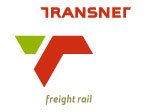
Top stories






More news

















Logistics & Transport
Uganda plans new rail link to Tanzania for mineral export boost









Profit from operations before depreciation and amortisation (EBITDA) though was up 3% to R13.2 billion.
This was achieved on the back of an 11.6% growth in revenue for the year to R33.6 billion.
The results are the first to be released since the freight transport and logistics company announced a year ago that it was now implementing a Growth Strategy after completing its turnaround, and since the economy was officially confirmed to be in a recession.
Chris Wells, the Acting Group Chief Executive at Transnet, attributed the performance to a combination of factors mainly the negative impact on volumes caused by the global downturn which was offset by productivity improvements and cost containment.
"The financial year was a tale of two halves: a strong first half that positioned the Company for the sharp decline in volumes experienced in the second half.
The impact of this slowdown was particularly more pronounced in general freight business (GFB) and containers wherevolumes decreased by 19% and 12% when compared to the first half of the year.
"However, our rapid and proactive response in the form of cost savings, productivity improvements, the impact of a new export coal tariff and revenue opportunities mitigated the impact of the decline in volumes caused by the downturn, resulting in the credible performance we see in these results."
Wells said Transnet's response to the crisis also included the introduction of the Dynamic Planning and Financial Management system which focus on weekly reviews of the major cash generators, key performance indicators and implementation of measures to preserve the cash flow.
"These (measures) include cost cuts, working capital reduction and re-phasing certain non-priority capital projects to the latter part of the five-year plan. Still, there is significant headroom for capital expenditure during the fourth and fifth years of our five-year plan", said Wells.
He also reiterated that the company will proceed, as planned, with its infrastructure investment programme of R80.5 billion over the next five years despite the current recessionary conditions and the uncertainty regarding the period of recovery.
Revenue came under pressure from the drop in container and commodity volumes important contributors to the company's revenue caused by the downturn especially in the last quarter of the financial year.
The impact was however offset by the implementation of a new coal tariff.
Operating expenses increased by 18% to R20.4 billion on prior year's levels due to the higher costs of fuel, electricity price increases and higher steel prices which made the cost of maintenance materials more expensive.
This resulted in a marginal decrease in the EBITDA margin.
Cash generated from operations, before changes in working capital, rose 2.6%, to R13.5 billion, reflecting Transnet's ability to generate strong cash flows.
The company's working capital was negatively impacted primarily by the increase in maintenance inventory, and an increase in receivables, due to an accrual of the coal export tariff and an amount owing from the Passenger Rail Agency of South Africa (PRASA) on the sale of Shosholoza Meyl.
As expected, gearing during the period increased from 30% to 36%, but it is still well below the 50% limit that Transnet has set to maintain a prudent financial position.
"We are pleased with this level which shows the significant capacity we still have to tap the debt capital markets to fund our R80.5 billion infrastructure investment programme.
Based on our plans and continuous focus on the critical financial ratios, we believe that in the medium term gearing will not exceed 47% even as we ramp up our capital investment programme," Wells said.
Looking ahead, Wells said apart from proceeding with the R80.5 billion investment plan, the company's focus will be on pursuing certain volume opportunities such as cost savings, safety and environmental management, as well as productivity and operational efficiency improvements, driven through the implementation of a KPI project, to ensure Transnet's efficiency standards are regarded as world class.
Published courtesy of